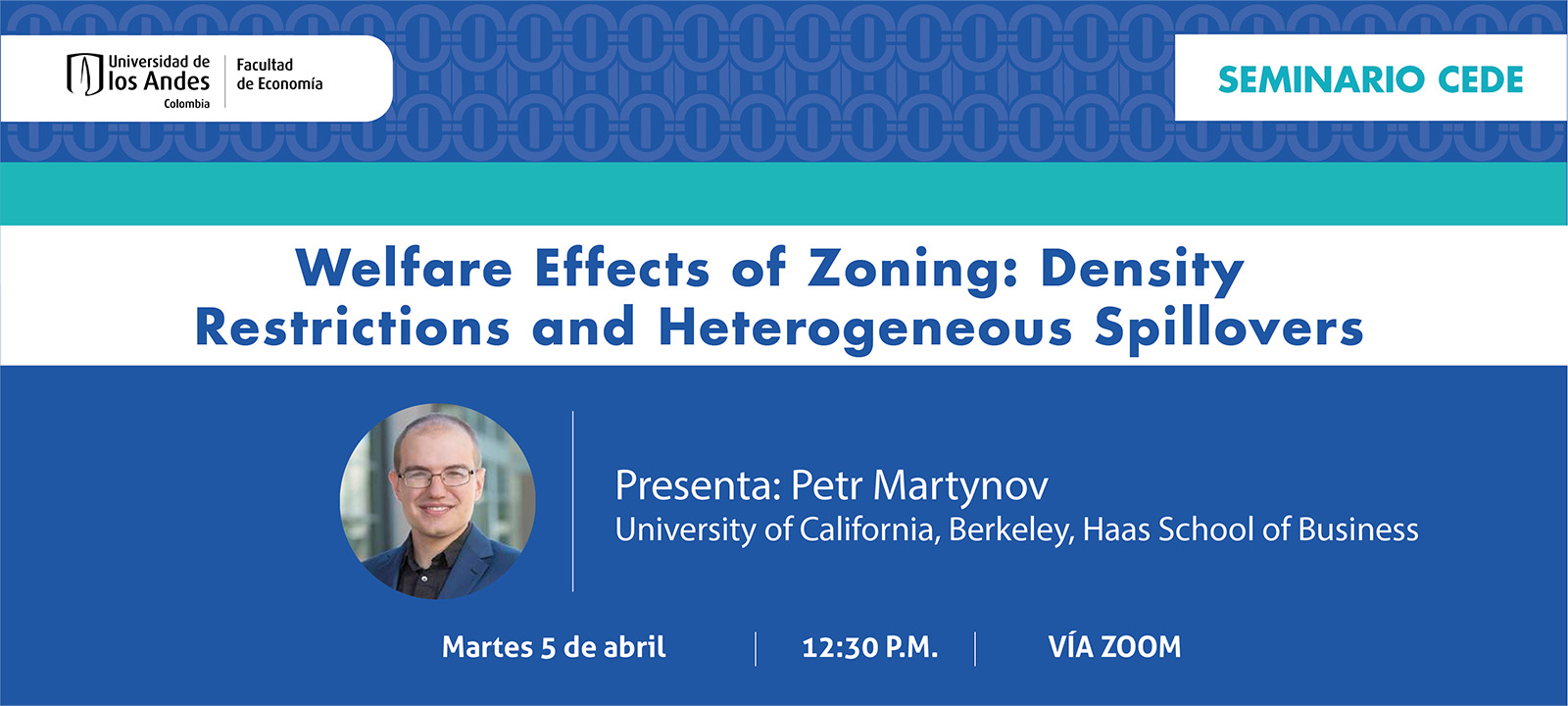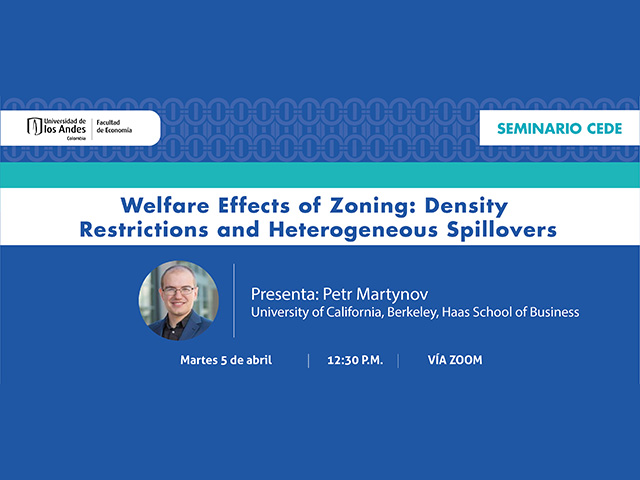Seminario CEDE - Petr Martynov

An extensive set of land use regulations shape the geography of most major US cities. I study how the distribution of these restrictions affects the location of industries within the city, aggregate productivity, and welfare. In a theoretical framework, the welfare effects of density restrictions depend on the strength of spillover effects, which I estimate using multiple datasets on economic activity within New York City. The estimates based on variation in the historical zoning reform imply higher productive externalities in the office sector and negative amenity externalities in the industrial sectors. Counterfactual policy simulations show that current density restrictions are very costly — increasing allowed density in the city by 5% leads to a welfare gain of 1%. Heterogeneity across sectors magnifies the welfare effects of restrictions on the office sector and in the city center.

